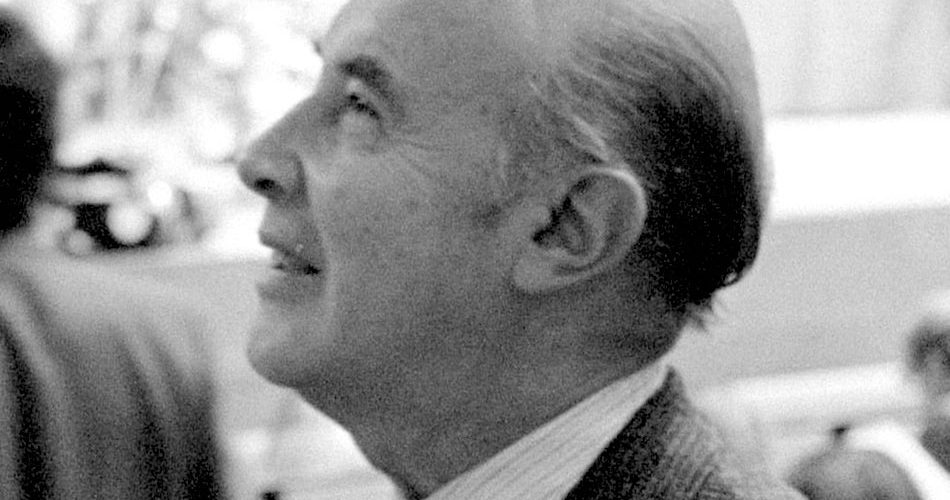1982 Nobel Peace Prize Winner
Alfonso García Robles (pronounced ROBE-lays) was born March 20, 1911, in Zamora, Mexico. As a young person, Robles thought about becoming a priest. He later changed his mind and studied law. He earned his law degree in Mexico. Robles then moved to Europe where he earned degrees from the University of Paris and The Hague Academy of International Law. The Hague, a city in the Netherlands, is the home of the Peace Palace, which houses the academy and the International Court of Justice.
Robles’s interest in peace showed in his career as a diplomat. In 1939, he joined Mexico’s Foreign Service. He worked two years for the Embassy of Mexico in Sweden before returning home. In 1945, he attended the San Francisco Conference as Mexico’s delegate. This conference established the United Nations (UN). From 1962 to 1964, he served as Mexico’s ambassador to Brazil and then as State Secretary in the Ministry of Foreign Affairs until 1970. From 1975 to 1976, he served as Mexico’s Foreign Minister. His work in the international community earned him a reputation as a Mexican nationalist. His friends described him as “obsessed” with disarmament. It was a common theme for Robles. He often spoke with national leaders about the possibility.
The month of October 1962 was a turning point in Robles’s career.
U.S. President John F. Kennedy learned that Russia was building nuclear missile sites in Cuba. The possibility of nuclear war alarmed people around the world. Kennedy and Russia’s leader Nikita Khrushchev made an agreement that prevented nuclear war, but the crisis prompted Robles to take a stand against nuclear weapons.
Robles introduced the Treaty for the Prohibition of Nuclear Weapons in Latin America and the Caribbean. This treaty met a mixture of opposition and apathy. Robles, well-known for his firm but thoughtful approach to challenges, led the negotiations — which lasted four years. On February 14, 1967, in Mexico City, 14 countries signed the treaty.
With nuclear weapons banned in those countries, Robles saw an opportunity to do more.
A year later, Robles helped draft the Treaty on the Non-Proliferation of Nuclear Weapons (NPT). The NPT’s purpose was to prevent the spread of nuclear weapons, promote disarmament, and encourage countries to work together to find peaceful uses for nuclear technology.
Robles continued to take part in the worldwide conversation about nuclear weapons. He served as Mexico’s permanent representative to the UN Disarmament Commission in Geneva. Robles’s lifelong dedication to peace earned him a Nobel Peace Prize in 1982 and the title “Mr. Disarmament” among his UN colleagues. He died September 2, 1991, in Mexico City.
References
“Alfonso García Robles—Biographical.” (2014). Nobelprize.org. Nobel Media AB. Retrieved from nobelprize.org/nobel_prizes/peace/laureates/1982/robles-bio.html
“Alfonso García Robles—Facts.” (2014). Nobelprize.org. Nobel Media AB. Retrieved from nobelprize.org/nobel_prizes/peace/laureates/1982/robles-facts.html
“Alfonso García Robles Facts.” (n.d.). Your Dictionary. Retrieved from biography.yourdictionary.com/alfonso-garcia-robles
McQuiston, J. T. (4 September 1991). “Alfonso García Robles dies at 80; shared Nobel for atom arms ban.” The New York Times. Retrieved from nytimes.com/1991/09/04/world/alfonso-garcia-robles-dies-at-80-shared-nobel-for-atom-arms-ban.html
Riding, A. (14 October 1982). “Man in the news; stubborn combatants in disarmament’s cause: Alfonso García Robles.” The New York Times. Retrieved from nytimes.com/1982/10/14/world/man-in-the-news-stubborn-combatants-in-disarmament-s-cause-alfonso-garcia-robles.html
Image credit: Alfonso Garcia Robles is licensed under CC BY-SA 3.0 NL.


